Uncategorized
-
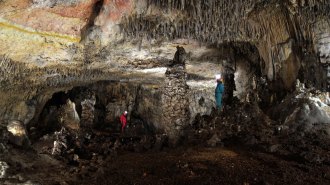 Humans
HumansNeandertal DNA from cave mud shows two waves of migration across Eurasia
Genetic material left behind in sediments reveals new details about how ancient humans once spread across the continent.
-
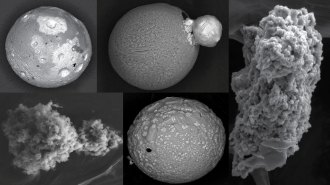 Planetary Science
Planetary ScienceEarth sweeps up 5,200 tons of extraterrestrial dust each year
Thousands of micrometeorites collected from Antarctica come from both comets and asteroids, a new study suggests.
By Sid Perkins -
 Life
LifeOnly 3 percent of Earth’s land hasn’t been marred by humans
A sweeping survey of terrestrial ecosystems finds that vanishingly little land houses all the animals it used to. Species reintroductions could help.
-
 Health & Medicine
Health & MedicineThe P.1 coronavirus variant is twice as transmissible as earlier strains
The variant first found in Brazil can evade some immunity from previous COVID-19 infections, making reinfections a possibility.
-
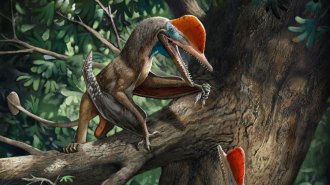 Paleontology
Paleontology‘Monkeydactyl’ may be the oldest known creature with opposable thumbs
A newly discovered pterosaur that lived during the Jurassic Period could have used its flexible digits to climb trees like a monkey.
-
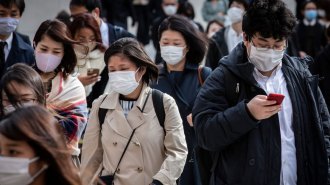 Anthropology
AnthropologyA coronavirus epidemic may have hit East Asia about 25,000 years ago
An ancient viral outbreak may have left a genetic mark in East Asians that possibly influences their responses to the virus that causes COVID-19.
By Bruce Bower -
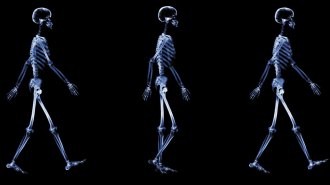 Anthropology
Anthropology‘First Steps’ shows how bipedalism led humans down a strange evolutionary path
In a new book, a paleoanthropologist argues that walking upright has had profound effects on human anatomy and behavior.
By Riley Black -
 Science & Society
Science & SocietySTEM’s racial, ethnic and gender gaps are still strikingly large
Black and Hispanic professionals remain underrepresented in STEM, while women’s representation varies widely by STEM field, according to a new report.
-
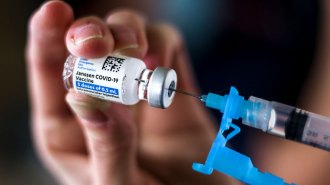 Health & Medicine
Health & MedicineU.S. pauses J&J vaccine rollout after 6 people of 6.8 million get rare blood clots
The COVID-19 vaccine’s pause is out of abundance of caution, experts say. The potentially deadly clots appear to be “extremely rare.”
-
 Neuroscience
NeuroscienceSurprisingly, humans recognize joyful screams faster than fearful screams
Scientists believed we evolved to respond to alarming screams faster than non-alarming ones, but experiments show our brains may be wired differently.
-
 Ecosystems
EcosystemsWildfires launch microbes into the air. How big of a health risk is that?
How does wildfire smoke move bacteria and fungi — and what harm might they do to people when they get there?
By Megan Sever -
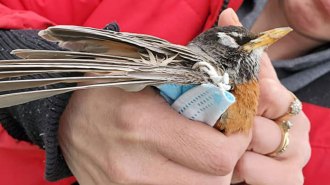 Animals
AnimalsDiscarded COVID-19 PPE such as masks can be deadly to wildlife
From entanglements to ingestion, two biologists are documenting the impact of single-use masks and gloves on animals around the world.